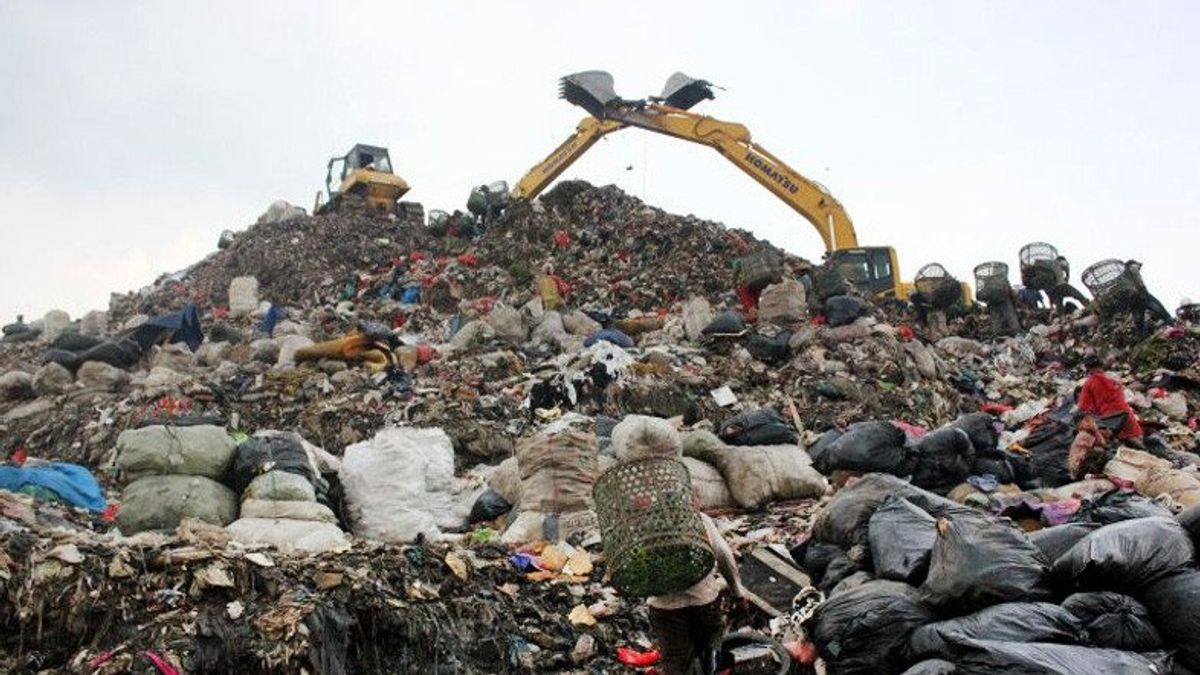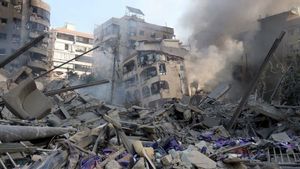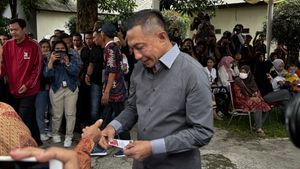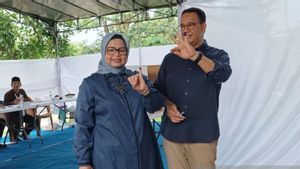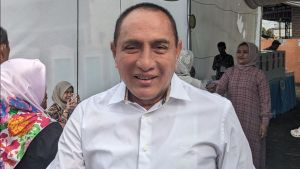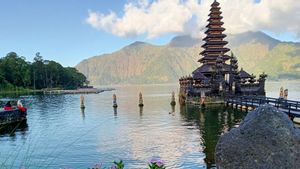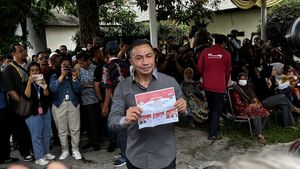JAKARTA - Head of the Community Participation Division of the DKI Jakarta Environmental Service (DLH), Agung Pujo Winarko, said that as much as 7,500 to 8,000 tons of garbage from DKI Jakarta continue to fill Bantar Gebang, Bekasi per day.
“When we talk about waste, it must be a priority issue in Jakarta. The waste that enters Bantar Gebang, the only Final Disposal Site (TPA) that we have, has reached 7,500 to 8,000 tons per day," Agung said as quoted by Antara, Saturday, May 14.
If compared to the height of the Gelora Bung Karno Stadium in Jakarta, Agung said that 7,500 to 8,000 tons of garbage can be piled up as high as 2.9 meters every day. As a result, now Bantar Gebang is almost overloaded inside.
Then from the amount of incoming waste, 1,200 of which are plastic waste that is difficult to decompose. In fact, when processed, plastic can have a selling value so that local residents can process it into something economical.
"This is our record, if the plastic has a selling value. That's the hope, the community can do the sorting. So don't let more waste enter Bantar Gebang, if it can be processed like in a waste bank, why not?" said Agung.
Agung said that issues related to waste must be a priority for all communities, especially related to microplastics which are increasingly endangering Indonesia's marine conditions. These priorities must also be understood down to the lowest level of society, namely the RT/RW pillars and families.
According to him, the government continues to encourage all parties to realize the importance of disposing and processing waste in its place. This can be seen from the issuance of DKI Jakarta Governor Regulation No. 77 concerning waste management within the scope of the neighborhood association.
"Later on, there will be a waste management field at the level of the RW structure, he will carry out waste processing within the community, he will draw up a work plan for waste management and form an organization in it, for example forming a waste bank," he said.
The government will also continue to strive to provide facilities and infrastructure that can support community activities, in order to process waste at the RW level, such as through a composter or maggot bio-conversion method.
However, Agung admitted that the government cannot fight alone to overcome the large amount of waste in Jakarta. He hopes that all parties will contribute and collaborate to deal with these problems together.
“Hopefully we can collaborate on simple things like sorting out trash at home and realizing that if there is economic value, it can be sold. We hope that garbage can be a blessing, not a problem,” said Agung.
The English, Chinese, Japanese, Arabic, and French versions are automatically generated by the AI. So there may still be inaccuracies in translating, please always see Indonesian as our main language. (system supported by DigitalSiber.id)
